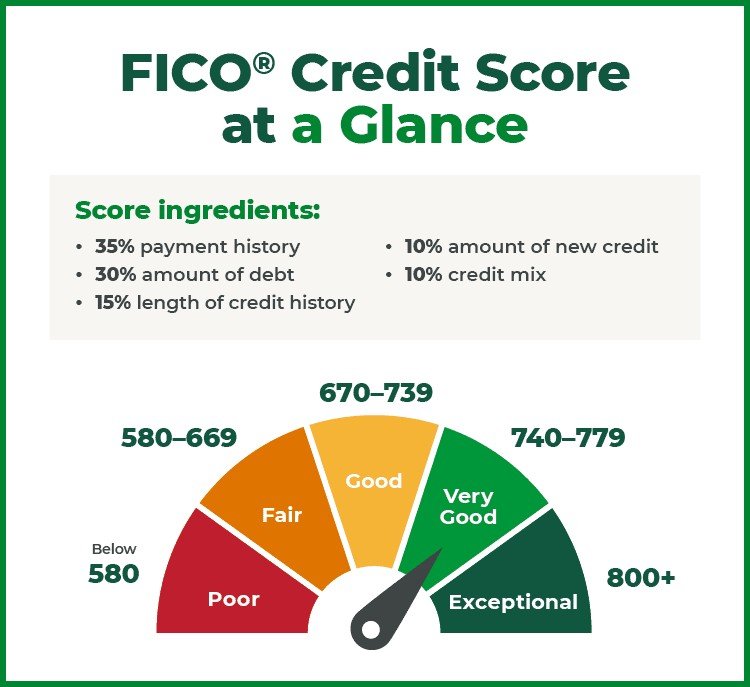Your credit score is a key piece to getting approved for a mortgage. Along with your income and DTI (debt-to-income ratio), credit score is probably the most important thing that lenders look at. Your credit score is, ideally, a reflection of your reliability in making timely payments and paying back debts. That said, it can be all too easy for your credit score to dip lower than you would like. If you are getting ready to purchase a home, there are a few things you can do to improve your credit score as quickly as possible.
6 Helpful Ways to Improve Your Credit Score
Pay bills on time
This probably seems obvious, but making regular payments is the number one factor considered by most credit reporting agencies. If you get behind, it’s crucial to get caught up as quickly as possible.
If you do end up missing a payment, and it’s a one-time thing, you can try contacting the company and asking them not to report it.
Avoid opening any new accounts
Sometimes opening a new line of credit is unavoidable, but you should avoid it if you’re planning to buy a home soon. You should definitely not apply for any new accounts once you’ve begun applying for a mortgage. (If you feel like you need a new account, discuss it with your lender first.) Not only does every hard credit inquiry ding your score a bit, new accounts also lower your average account age. Even if your credit is great to begin with, it’s best not to take out any new loans or credit cards.
Keep your credit cards, but limit how much you use them
You might think that paying off credit cards would be in your best interest, but it is usually better to keep the account open and keep your credit utilization low. (Ideally you should use 7-30% of your maximum.) Consistently making payments is one of the quickest ways to improve your credit score, as most credit card companies report back to credit bureaus each billing cycle. (If you do end up using more than 30% of your credit line, try to pay it back between cycles, even if that means making multiple payments in the same month.)
If you’ve had accounts open for a while, consider asking the company for a higher limit. A higher credit limit instantly lowers your utilization percentage without you making any changes to spending or payments. If you’ve had your card for a long time and have made consistent payments, or if your income has gone up since you were issued the card, it’s worth asking for a limit increase.
Take care of anything in collections
In most cases unpaid debts eventually end up being sold off to a collection agency. Owing to collections can be a big hit to your credit score and the sooner you can pay it off the better. The good news is that collection agencies will often settle for less than the full amount of your debt, especially if you pay in one lump payment. As part of the negotiation, you can ask the collector to stop reporting the debt. This will ensure that your credit is able to bounce back as quickly as possible.
Dispute any credit errors
Disputing an error on your credit report can be time consuming but may be worth it if the mistake is significant. Disputing an error involves checking all three of your credit reports (You can request a free copy of each annually) and compiling the documentation to prove there was a mistake. How long it takes to resolve a dispute can vary but in most cases you can expect a preliminary response within 30 days.
Note: Through 2022 you can visit AnnualCreditReport.com for free weekly credit reports from the three major credit bureaus.
Use a rent reporting service
This could be especially effective if you are just getting started on building your credit and you always make your rent payments on time. Rent payments are not automatically reported to credit bureaus, but all three major agencies will include rent payments in your credit report if they receive them. Rent reporting services do precisely that, for a fee. Some will even retroactively report past payments.
While buyers with lower credit scores can still get approved for mortgages, it always helps to have a higher score. Along with the tips above, you can speak directly with a lender for advice on do’s and don’ts for boosting your credit rating. The experts here at Fairway’s First Team are always here to answer any questions you may have.
Fairway’s First Team can help you be prepared for your loan or home mortgage application process. We prep you with a comprehensive application checklist to make it a smoother, simpler experience. Who doesn't love easy? 🤗😎https://t.co/7F7u73mHxB pic.twitter.com/49P1TLN9GV
— FairwaysFirstTeam (@FairwayImco) March 26, 2022



